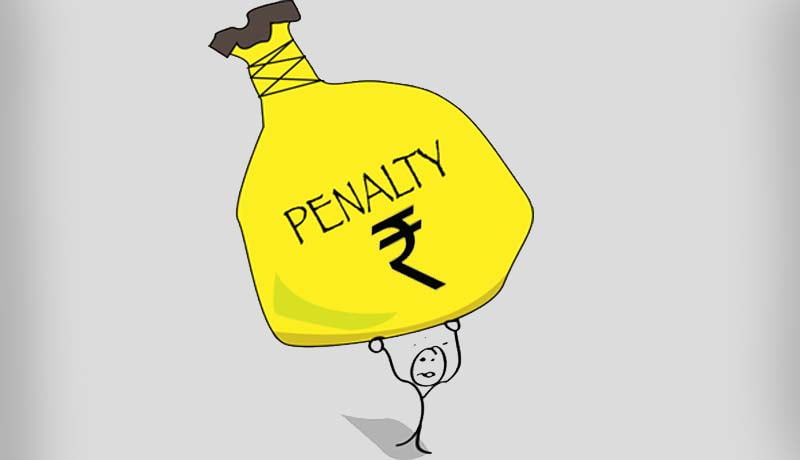Failure of the Assessee to Prove the Legality of his Undisclosed Income will not attract Penalty u/s 271(1)(c); ITAT Hyderabad [Read Order]

NAA GST Rate Reduction – Penalty – Taxscan
NAA GST Rate Reduction – Penalty – Taxscan
The Hyderabad bench of Income Tax Appellate Tribunal recently held that the failure on the part of the assessee to substantiate the legality of his undisclosed income will only attract assessment through which the said amount can be added to his total income. However, the same cannot be a ground for levying penalty on the assessee under section 271(1)(C) of the Income Tax Act, 1961. The relevant facts and decision of the Tribunal are discussed below.
The assessee, an individual, had deposited a sum of Rs.15,05,000 in his Syndicate Bank savings a/c. The Assessing Officer, on receipt of information received, has found that the assessee has not paid income tax for the said amount. The assessee maintained that the amount deposited in assessee’s bank a/c was arranged by the Consultants M/s. Vishu Consultants Ltd, Hyderabad so as to enable the assessee’s son to get visa to USAfor pursuing studies in USA. The ofiicer, however, completed the assessment by treating the amount as unexplained investment u/s 69 of the I.T. Act since no documents were produced by the assessee to prove the legality of the said income. Further, penalty u/s 271(1)(c) was also levied against the assessee.
The assessee approached the CIT(A) contending that the said income cannot be treated as income of the assessee since no income was derived by him. further, the assessee prayed for deleting the penalty. The CIT(A) rejected the above contentions. Therefore the matter was brought before the Tribunal.
Before the Tribunal, the assessee reiterated in his earlier contentions.It was also submitted that the penalty levied is not sustainable since the failure of the assessee to substantiate this claim has resulted in the addition, but cannot be a ground for levying penalty and material has been brought on record by the authorities for the willful concealment or evasion of tax.
The Tribunal, placing reliance on variuos decisions of the High Courts in which the Courts were of the opinion that an addition made in the assessment of the income does not automaticaly attract the levy of penalty. Based on this, the Tribunal held that “Unless and until the conditions for levy of penalty are satisfied/fulfilled, the AO cannot levy the penalty u/s 271(1)(c) of the Act.”
It was further held that “the case before us, the assessee has not filed the return of income till the AO has called for the return of income. Therefore, it cannot be stated to be a case of furnishing of inaccurate particulars of income. However, as regards the concealment of income, since the assessee has not furnished any information, it may be considered as a case of concealment of income”.
While concluding, the Judicial Member Smt. Madhavidevi added that “we agree with the contentions of the assessee, that though the addition is justified, it is not a fit case for levy of penalty u/s 271 (1)(c). Under similar circumstances, the Coordinate Bench of this Tribunal at Delhi in the case of Income Tax Officer vs. Shri N. Motilal Nalluri in ITA No.388/Del/2010 has deleted the penalty u/s 271(1)(c) of the Act. In view of the same, I delete the penalty levied by the AO u/s 271(1)(c) of the Act.”
Read the full text of the order below.


